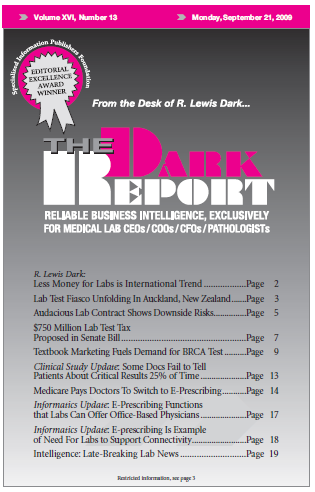CEO SUMMARY: In Auckland, New Zealand, unfolding events may soon reveal the answer to a long-standing question in pathology: is there a point where deep cuts to payment for lab testing causes such a decline in quality and service that other health services undergo disruption? District Health Boards, to save about 20% of their lab …
Audacious Lab Contract Shows Downside Risks Read More »
To access this post, you must purchase The Dark Report.


